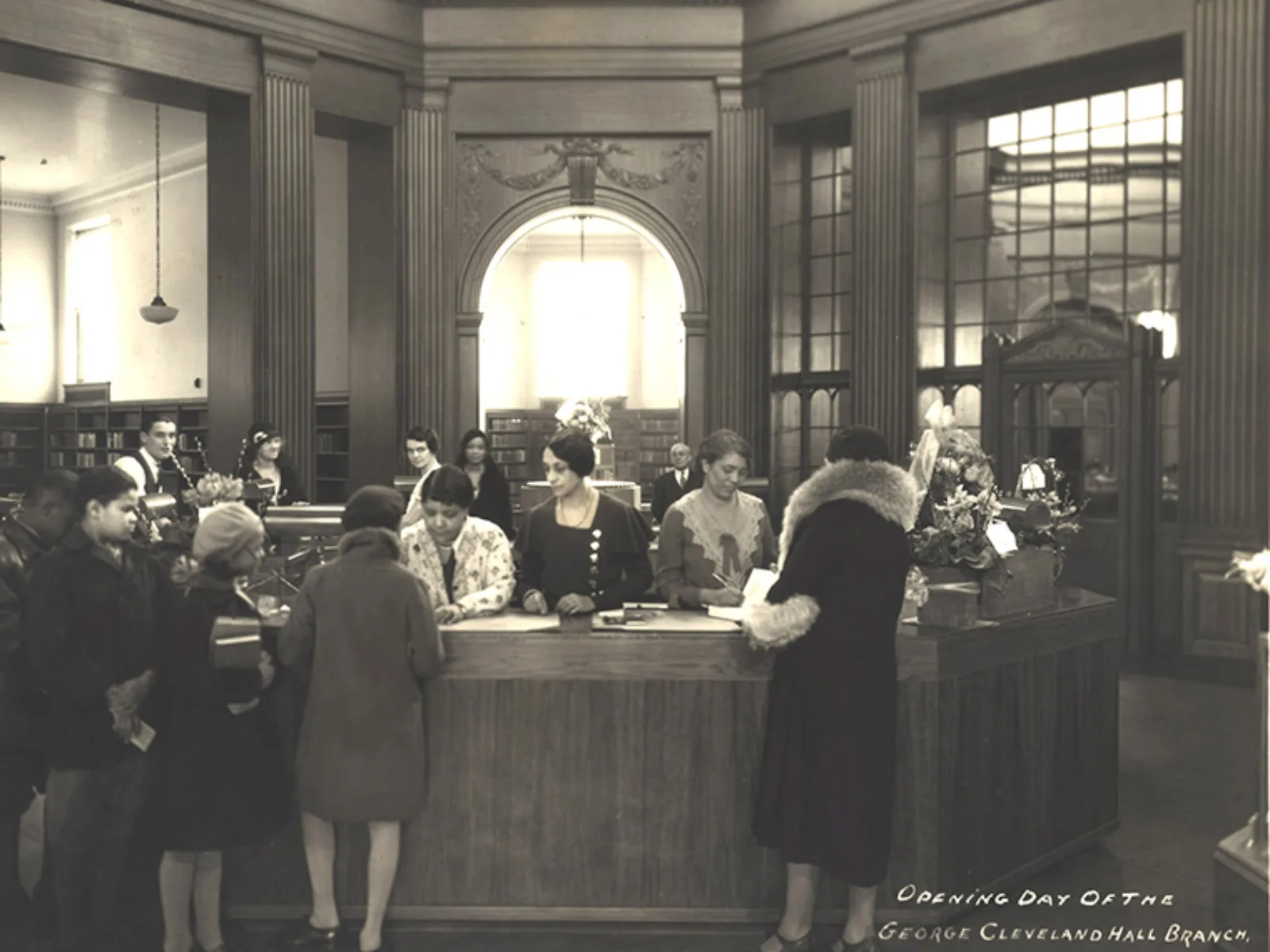What words come to mind when you think about Chicago? How did poets and writers in this city develop a voice and a language distinct to the city?
If Chicago after the 1919 race riots cordoned off black neighborhoods through restrictive housing covenants, then the writers of Bronzeville also were emboldened by their community’s quest for cultural self-determination. By the 1930s, Bronzeville became the city’s most creative zone of literary and artistic ferment, a place that inspired work by writers such as Gwendolyn Brooks, Frank Marshall Davis, Margaret Walker, and Richard Wright.
This program will feature readings and conversation about literary language that gives voice to Chicago’s difficult and often violent history. Participating in the conversation will be writer and scholar Eve L. Ewing, whose new book of poems explores the 1919 race riots, and Kenneth Warren, Fairfax M. Cone Distinguished Service Professor and Professor of English at the University of Chicago, whose most recent book is What Was African American Literature? The Newberry’s Director of Chicago Studies, Liesl Olson, will moderate.
About Chicago 1919: Confronting the Race Riots
The Chicago 1919 Race Riots precipitated the most violent week in Chicago history. They were sparked by the murder of Eugene Williams, an African American teenager stoned and drowned by a white man for floating his raft over an invisible line into a whites-only South Side beach. The police refused to arrest the white perpetrator, and the city erupted in arson, looting, and thirty-eight deaths (23 black, 15 white) until the National Guard was called to restore order. The riots inflicted lasting scars on the city, still visible in the lines of segregation throughout the city’s built environment, its schools, and its selective policing.
Chicago 1919: Confronting the Race Riots is a year-long initiative to heighten the 1919 Chicago race riots in the city’s collective memory, engaging Chicagoans in public conversations about the legacy of the most violent week in Chicago history. Follow the link above to learn about the series of events, explore digital resources, and more. This project is funded by a National Endowment for the Humanities "Community Conversations" grant, and is being coordinated by the Newberry Library in partnership with 13 other Chicago institutions. Any views, findings, conclusions, or recommendations expressed in these programs do not necessarily represent those of the National Endowment for the Humanities.
Your generosity is vital in keeping the library’s programs, exhibitions, and reading rooms free and accessible to everyone. Make a donation today.
